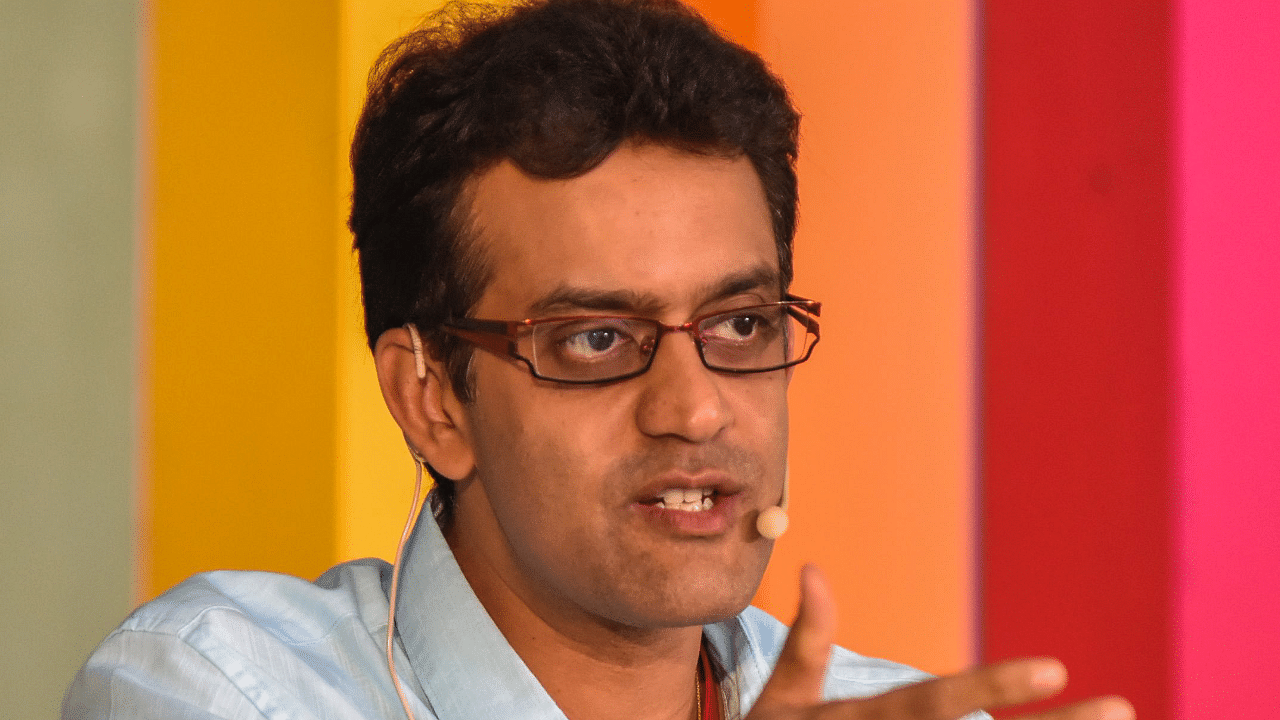
In 2015, several writers began returning their awards in protest against the Modi government's silence on rising incidents of communal violence. This 'award wapsi' soon echoed at the Bengaluru Literature Festival.
Several writers pulled out of the event, protesting against the views of the co-founder on writers returning awards. Arguing that the festival was bigger than his views, which were a personal matter, the co-founder stepped down from his role.
The lit-fest co-founder was none other than Vikram Sampath.
“I am yielding to reclaim a larger space,” Sampath had said then, adding that he was not apologetic about his views.
Seven years later, Sampath is in the eye of another storm. This time, however, he is standing his ground.
Sampath's two-part biography of right-wing ideologue Vinayak Damodar Savarkar has invited the ire of several left-wing historians, and he has been accused of plagiarism.
Earlier this month, after Sampath was made a member of the Royal Historical Society (RHS), three historians — Georgetown University professor Ananya Chakravarti, Santa Clara University associate professor Rohit Chopra and Rutgers University associate professor Audrey Truschke — dispatched a letter on February 15 to the RHS.
In the letter, the trio claimed that Sampath had lifted entire paragraphs from two articles in a piece on Savarkar that was published in 2017.
They also wrote that the Savarkar biography has striking similarities with a 2012 thesis by a student of the Wesleyan University.
Sampath in his defense said this was part of an “international smear campaign” to discredit him because “he has shown the academic courage and gumption to challenge the prevailing narrative around a historical figure” like Savarkar. He filed a lawsuit against the three in the Delhi High Court, seeking damages of Rs 2 crore and a permanent injunction against them.
The court has now passed an injunction, asking the historians to not publish the letter till the next hearing.
Before the Savarkar biography, Sampath had written three more books: one on Mysore's Wodeyar kings, another on the 19th-century musician Gauhar Jaan and on veena maestro S Balachander.
Early beginnings
A financial analyst who grew up in Bengaluru, Sampath juggled his passion for literature with his day job till he bagged a full scholarship for a PhD at the Queensland University in ethnomusicology. He left his job to pursue it.
On his website, Sampath mentions Bengaluru as his first love and Carnatic music as a key interest. He writes about his stint as a fellow at the Institute for Advanced Study (Wissenschaftskolleg) in Berlin, where he studied the early gramophone recordings of Indian music.
Sampath also established the Archive of Indian Music (AIM) to digitise and preserve old gramophone recordings and became the founder-director of the ARTH: A Culture Fest, apart from the Bangalore Lit Fest.
He was also a senior fellow at the Nehru Memorial Museum and Library and was a recipient of the Sahitya Akademi’s Yuva Puraskar in 2012.
People from the Bengaluru literary scene remember him as a cheerful person who used to be at the forefront of social events.
A Bengaluru-based writer, not willing to be identified, said that Sampath’s rise as a literary star of the right-wing was surprising to them. “Maybe what worked for him was that he had the right socio-caste equation and knew which way the wind was blowing,” the writer said.
The two volumes on Savarkar also show that Sampath is unafraid of reopening old wounds, an ambition that has earned him the gratitude of the country's right-wing.
Speaking at an event in New Delhi recently, Sampath said that "we may be politically independent, our minds are far from being decolonised".
Rajya Sabha MP Swapan Dasgupta says that the attack on Sampath is baseless.
“The entrenched historians have always portrayed the right-wing as a bunch of illiterates, incapable of writing, comprehending and judging seriously. In all honesty, Sampath has written two volumes. And rather than any substantive argument, there are frivolous charges of plagiarism on him,” says Dasgupta. “It is basically a way of saying, how dare you intrude into our terms.”
For the right-wing, mocked for lacking serious thinkers with published tomes, Sampath is part of a growing body of intellectuals that include Sanjeev Sanyal, J Sai Deepak and Abhijit Iyer-Mitra among others. To this end, several voices have come out in his support.
What is unmissable is the fact that the defence of Sampath is pretty much a defence of Savarkar, a man who the right-wing has been trying to rescue from the notoriety of a plea bargain with the British government during India’s freedom struggle so that the Sangh can idolise the controversial thinker without embarrassment and criticism.
With his two volumes, Sampath has secured a seat in the right-wing intellectual camp.
Watch the latest DH Videos here: